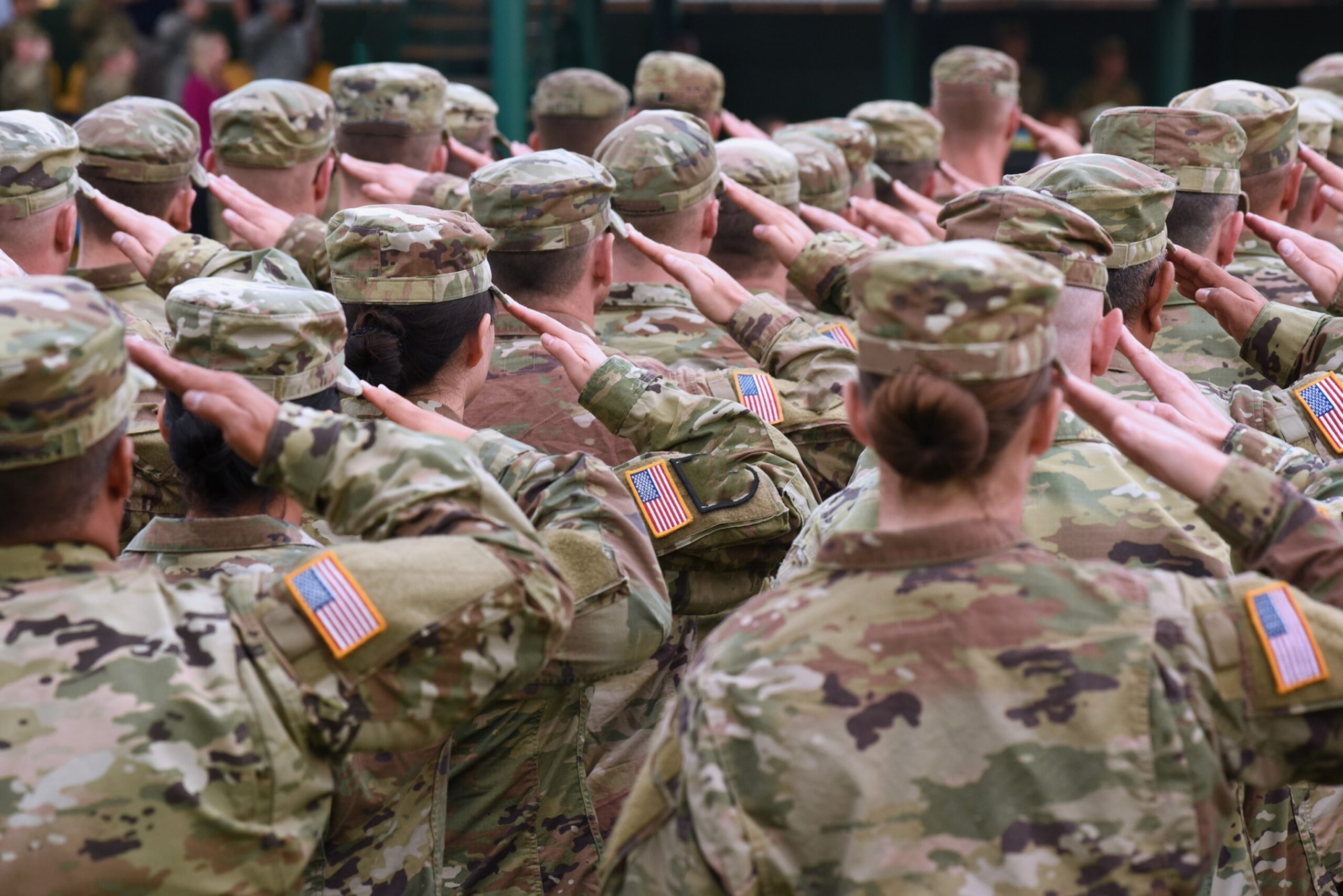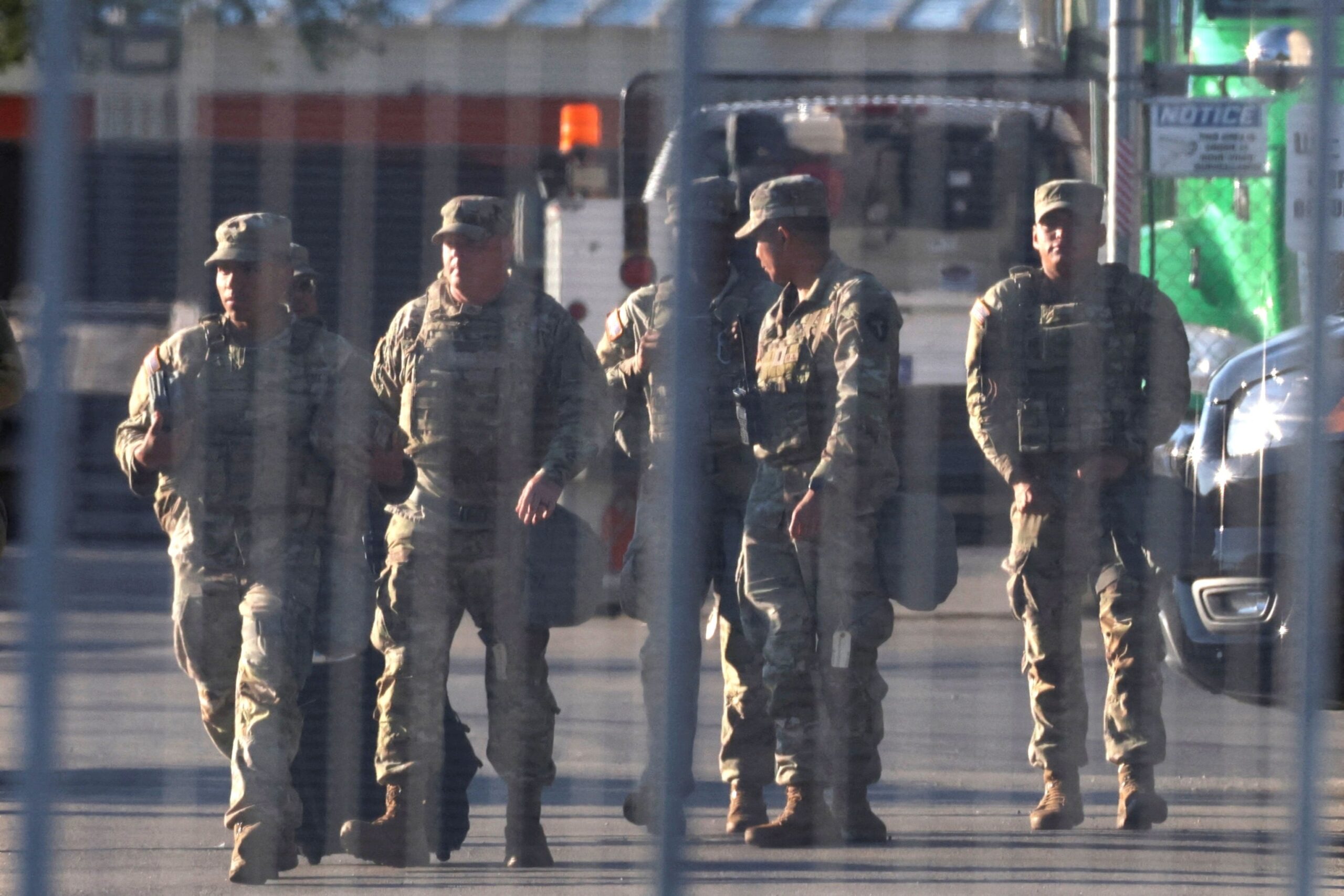Explainer: Can the military refuse orders?

Members of the U.S. military have the legal right to refuse orders they consider illegal, but they risk violating military obedience laws. whether the order is really legal, military law experts say.
Service members are expected to presume that their orders are legal (if they relate to military duty and come from an appropriate authority in the chain of command), unless the orders fit into a “small subset” of egregious orders that would constitute war crimes. That standard was set at the Nuremberg trials after World War II, in which Nazis could not defend their crimes simply by following orders.
However, most orders that blur the line between legal and illegal reside in a gray area in which soldiers, airmen, sailors, Marines, and Coast Guardsmen are not required to disobey. They have the right to refuse an order, but by the time the order reaches them, a military lawyer has likely already made a judgment on the legality of the order, former military lawyers told ABC News.

Saluting American soldiers.
FILE PHOTO/Adobe Stock
Military orders have been under the microscope in Washington in recent days after a group of Democratic lawmakers, all of whom are military veterans or served in the U.S. intelligence community, released a video in which they told members of the military that their oath of enlistment requires them to refuse “unlawful orders.”
“Right now, threats to our Constitution come not just from abroad, but from right here,” the lawmakers told service members. “Our laws are clear: You can refuse illegal orders… You must refuse illegal orders. No one has to carry out orders that violate the law or our Constitution.”
Sen. Mark Kelly, an Arizona Democrat who served 25 years in the Navy and as a NASA astronaut, said the group was simply “defend the Constitution.”
“I think it’s important to say there’s nothing more American than defending the Constitution, that’s what we were doing. The president didn’t like it, so now he’s calling for us to be hanged,” Kelly told CNN.
Senator Elissa Slotkin, a former CIA officer who participated in the video, He told ABC News’ “This Week” on Sunday that lawmakers released the video because military officials had approached them directly with concerns.
“We’ve had report after report of legal officials, JAG officials, reaching out and saying, ‘Look, I reject this. I’m not sure this is legal,'” Slotkin said. “There are such things as illegal orders. That’s why it’s in the Uniform Code of Military Justice. Going back to Nuremberg, right? And it’s just a… it’s a totally benign statement.”
According to retired Lt. Col. Rachel VanLandingham, a Southwestern Law School professor and former U.S. Air Force Judge Advocate General (JAG), a service member “shall” refuse orders only in cases of “clearly” illegal actions, in accordance with the Nuremberg Principle.
In a news release Monday, the Department of Defense said it would open an investigation into Kelly for his role in the video.
Military law, known as the Uniformed Code of Military Justice, applies to retired military members, a status achieved after 20 years of service that confers a pension linked to rank.
Defense Secretary Pete Hegseth, echoing President Donald Trump, called the video “seditious.”
“Encouraging our warriors to ignore the orders of their commanders undermines all aspects of ‘good order and discipline,'” Hegseth wrote on Monday X.
The Pentagon “is reviewing his statements and actions, which were directed directly at all troops while explicitly using his rank and service affiliation, giving the appearance of authority to his words,” he added.
Vice President JD Vance also weighed in on social media: “If the president has not issued illegal orders,” he wrote, “[then] “Members of Congress telling the military to defy the president is, by definition, illegal.”
John Dehn, a professor at Loyola University Chicago School of Law and former Army JAG officer, said the administration could argue that the video raises questions about the separation of powers.
“I think what the vice president is trying to say is that members of Congress should not prejudge the legality of orders that might be issued, and that doing so tends to interfere with the military chain of command,” Dehn said.
However, it is “unresolved” whether the statute the Pentagon refers to – which deals with an “intent to interfere” with military loyalty and morale – could be used to prosecute “members of Congress who remind service members of their basic obligation not to follow unlawful orders,” he added.

Senator Mark Kelly watches a press conference calling for the release of the Epstein files, on Capitol Hill, Nov. 18, 2025.
Annabelle Gordon/Reuters
For service members, choosing to disobey is a risk.
“The risk is on the service member if they choose to disobey an order and that order turns out to be legal,” Dehn said. “They take the risk that it may be legal when they disobey, which is another reason why, when soldiers ask about this, we advise them to seek clarification and, if possible, legal advice.”
“Disobedience is not the first step,” he said.
A military judge, not a jury, would determine whether a disobeyed order was legal, experts said.
“The law cloaks all orders under the presumption of legality, as long as they are given by proper authority and related to a military duty,” VanLandingham said. “The default is to follow all orders, and all orders are presumed legal.”
That failure is “understandable,” VanLandingham said, “because the military for centuries has been a hierarchical organization whose lifeblood, whose primary dynamic, is obedience to orders.”
“My main complaint about the congressmen’s video was that it failed to appreciate the dilemma service members really find themselves in,” VanLandingham added. “Strict obedience to orders is the default… especially when you have things like lawyers telling you it’s legal.”
In interviews in recent days, lawmakers in the video have questioned U.S. military action in the Caribbean Sea and Eastern Pacific Ocean against suspected drug traffickers (where 21 attacks have killed 83 people, according to the Department of Defense) and federal National Guard deployments in U.S. cities like Los Angeles.
The lawmakers did not make those references in the video. Since it was published, Kelly and Sen. Elissa Slotkin, a former CIA officer who participated in the video, have said they cannot point to a specific recent military order that they consider illegal, although Slotkin said Sunday on ABC News’ “This Week” that “there are certainly some legal exercises going on with these attacks in the Caribbean and everything related to Venezuela.”
It is unclear if any service members have been asked to break the law.
VanLandingham says service members have received “legal coverage” from attorneys who have ruled on legality.
In the case of attacks as part of the military’s anti-narcotics campaign, a classified memo from the Justice Department’s Office of Legal Counsel, which was reported to members of Congress, makes it extremely difficult for the military to refuse orders.
Service members can seek a judge advocate or military attorney if they are uncomfortable with an order.
“You would go to a military lawyer for advice on whether it’s legal or not, and if you still think it’s illegal, then you disobey him and see what happens,” VanLandingham said.
“Service members disobey at their own risk,” he said.
Hegseth has publicly disparaged military lawyers when recounting his experience with JAGs during his military service. In February, the secretary fired senior Air Force and Army JAGs.







